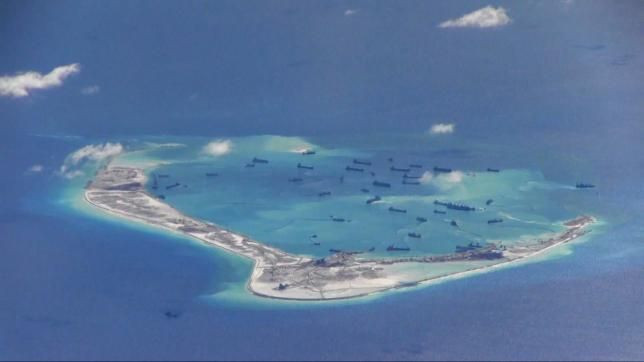China Says About To Finish Some Land Reclamation In South China Sea

China is about to complete some of its land reclamation work on the Spratly Islands in the disputed South China Sea, the foreign ministry said on Tuesday, shedding light on a controversial project that has inflamed regional tension.
The announcement is likely to rattle the Philippines and the United States, both of which have clashed with China over Beijing's extensive land reclamation in the Spratly archipelago.
China has been taking an increasingly assertive posture over recent years in the disputed waters of the South China Sea.
The Pentagon believes the work aims to cement China's claim to most of the South China Sea and worries it may declare an exclusion zone in the sea that could limit free movement of ships and aircraft.
"China will complete its reclamation project soon as part of its South China Sea construction in parts of the Nansha islands," the foreign ministry said in a statement, using the Chinese name for the Spratlys, but did not give a timeframe.
The ministry reiterated China's stance that its construction in the region is meant to help activities such as maritime search and rescue, disaster relief, environmental protection and navigational security, as well as military purposes.
After the land reclamation is complete, China will build facilities that can "fulfill the relevant functions", it added.
China claims most of the South China Sea, through which $5 trillion in ship-borne trade passes every year, and the Philippines, Vietnam, Malaysia, Taiwan and Brunei have overlapping claims.
The construction is within the scope of China's sovereignty, the foreign ministry added.
"It is fair, reasonable, lawful. It does not affect, and is not targeted against, any country, and will not affect countries' freedom of navigation and overflight in the South China Sea," it said. "It is beyond reproach."
© Copyright IBTimes 2024. All rights reserved.




















